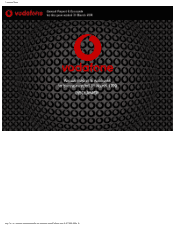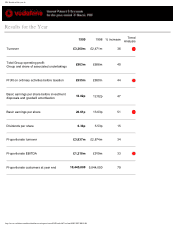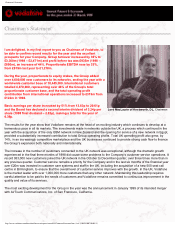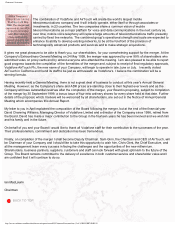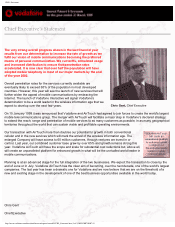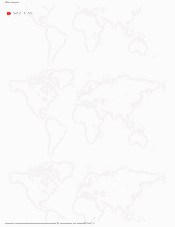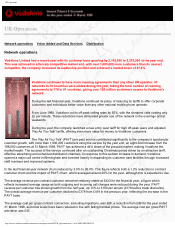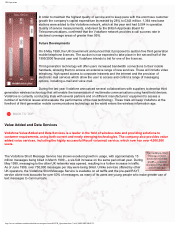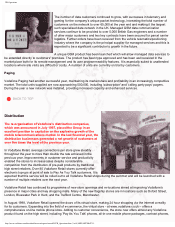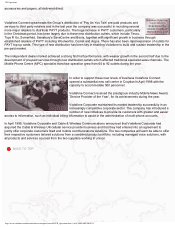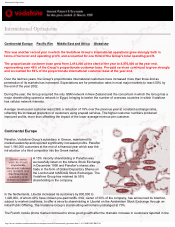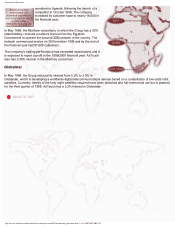Vodafone 1999 Annual Report Download - page 7
Download and view the complete annual report
Please find page 7 of the 1999 Vodafone annual report below. You can navigate through the pages in the report by either clicking on the pages listed below, or by using the keyword search tool below to find specific information within the annual report.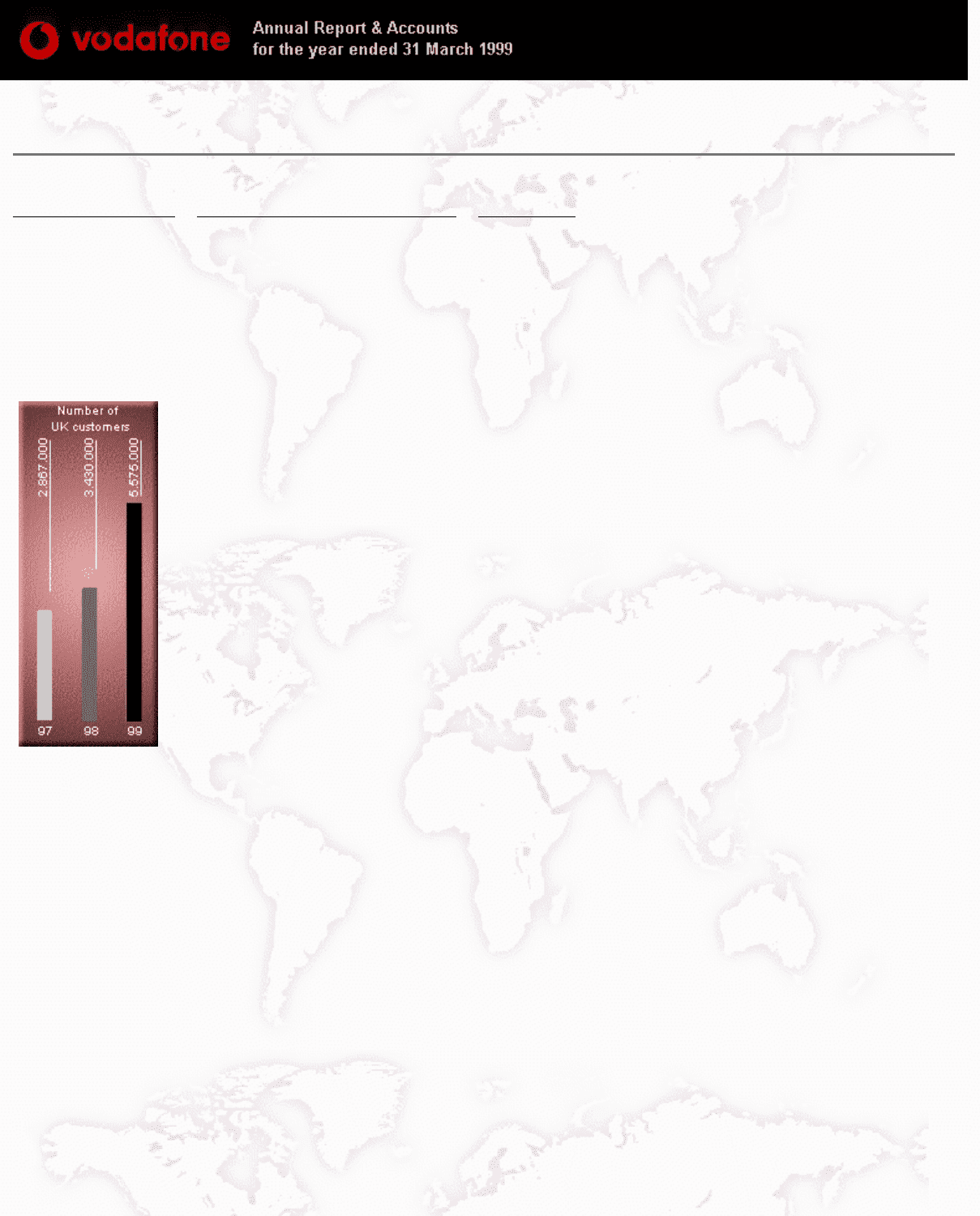
UK Operations
UK Operations
Network operations Value Added and Data Services Distribution
Network operations
Vodafone Limited had a record year with its customer base growing by 2,145,000 to 5,575,000 at the year end.
This was achieved in a fiercely competitive market and, with over 1,000,000 more customers than its nearest
competitor, the company increased its leadership position and achieved a market share of 37.4%.
Vodafone continues to have more roaming agreements than any other UK operator. 47
networks in 10 countries were added during the year, taking the total number of roaming
agreements to 174 in 91 countries, giving over 120 million customers access to Vodafone’s
network.
During the last financial year, Vodafone continued its policy of reducing its tariffs to offer corporate
customers and individuals better value than any other national mobile phone operator.
From June 1998, Vodafone cut its off-peak calling rates by 50%, with the cheapest calls costing only
2p per minute. These reductions have stimulated greater use of the network in the evenings and at
weekends.
During the year, the company launched a new entry level tariff for high off-peak users and adjusted
‘Pay As You Talk’ tariffs, offering even more value for money to Vodafone customers.
The ‘Pay As You Talk’ (PAYT) pre-paid service contributed significantly to the company’s spectacular
customer growth, with more than 1,800,000 customers using the service by the year end, an eight-fold increase from the
198,000 customers at 31 March 1998. PAYT has achieved a 44% share of the pre-paid market, making Vodafone the
market leader. The success of the service continued after an outstanding Christmas period driven by an attractive tariff,
effective advertising and enhanced distribution channels. In response to this sudden increase in demand, Vodafone
opened a major call centre in Birmingham and invested heavily in expanding its customer care facilities through increased
staff numbers and improved systems.
In the last financial year network churn reduced by 3.0% to 26.0%. This figure reflects both a 1.2% reduction in contract
customer churn and the impact of PAYT churn, which averaged around 20% for the year, although this is expected to rise.
The average revenue per contract customer remained relatively stable at £423 for the financial year, a figure which
reflects increased average usage as both outgoing and incoming call charges were reduced during the year. PAYT
revenue per customer has shown growth from the half year, up 10% to £159 per annum (£178 before trade discounts).
The overall average revenue per customer declined to £378 from £419 in the previous year, reflecting the increase in the
PAYT base.
The average cost per gross contract connection, excluding migrations, was £88, a reduction from £99 for the year ended
31 March 1998, as bonus levels have been reduced in line with falling handset prices. The average cost per gross PAYT
activation was £43.
http://www.vodafone.com/download/investor/reports/annual99/UK_Operations.htm (1 of 4)30/03/2007 00:07:33

